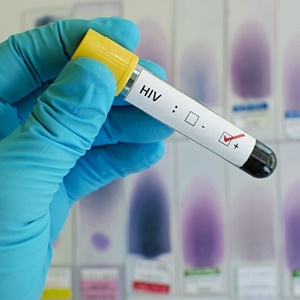
It is crucial to break the pharmaceutical industry's "tight grip" on government policies and drug prices in order to help end the Aids epidemic, according to the United Nations.
Aids-related deaths have dropped more than 40 percent since 2004 to 1.2 million a year, the report said. New HIV infections have fallen by 35 percent since 2001 to 2 million a year in 2014.
Read: Why you shouldn’t delay ART
Investment in HIV/Aids surged to almost $22 billion in 2015 from less than $5 billion in 2001.
One of the most remarkable successes has been reducing new infections among children by 58 percent between 2000 and 2014, the agency said.
This has been achieved by ensuring women with HIV receive medicine to prevent them from passing on the infection when they give birth.
"During the first decade of the epidemic, there was very little to offer someone dying from Aids," Michel Sidibe, executive director of UNAIDS, said in the report. "The best you could hope for was that your family wouldn't throw you out."
The key to change, he said, was breaking the pharmaceutical industry's "tight grip" on government policies and drug prices.
Read: India scraps import duties on Aids drugs
Legislation allowing developing countries to override patent rights was critical, allowing them to manufacture copies of the drugs and cut prices.
The UN Millennium Development Goal to halt and reverse the spread of the disease has been achieved, said UNAIDS, the global body's agency focusing on the disease.
UNAIDS is driving efforts to end the epidemic by 2030 by enabling everyone to have access to prevention services, treatment and support.
"Ending the Aids epidemic as a public health threat by 2030 is ambitious, but realistic, as the history of the past 15 years has shown," UN Secretary General Ban Ki-moon said in a report released at a financing conference in Ethiopia on Tuesday.
Some 15 million people are receiving antiretroviral treatment for HIV/Aids, a staggering increase from less than 700 000 in 2000.
At that time, patients had to take an average of eight pills per day, costing $10 000 a year. Today, medicines can be bought for $100 a year.
These medicines keep the virus from growing and multiplying - helping people to live longer and reducing the chances that they will transmit HIV to others.
Read: No shortage of ARVs in South Africa
Aids-related deaths have dropped more than 40 percent since 2004 to 1.2 million a year, the report said. New HIV infections have fallen by 35 percent since 2001 to 2 million a year in 2014.
Investment in HIV/Aids surged to almost $22 billion in 2015 from less than $5 billion in 2001.
One of the most remarkable successes has been reducing new infections among children by 58 percent between 2000 and 2014, the agency said.
This has been achieved by ensuring women with HIV receive medicine to prevent them from passing on the infection when they give birth.
Last month, Cuba became the first country in the world to eliminate mother-to-child transmission of HIV.
The medical charity Medecins Sans Frontieres (MSF) warned against complacency, pointing out in a statement that more than half of almost 37 million people living with HIV worldwide still do not have access to treatment.
Also read:
Homosexuality ban threatens HIV progress in Uganda
Suicide intervention 'tool' for HIV patients
6 good reasons why you need life insurance when you are HIV positive
Image: Blood sample with HIV positive from Shutterstock




 Publications
Publications
 Partners
Partners











